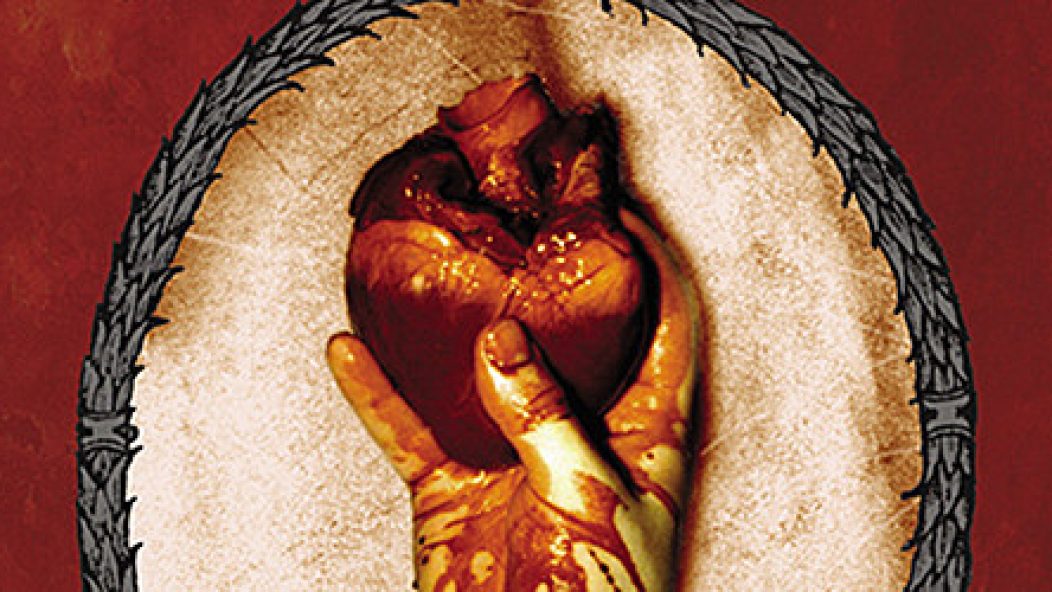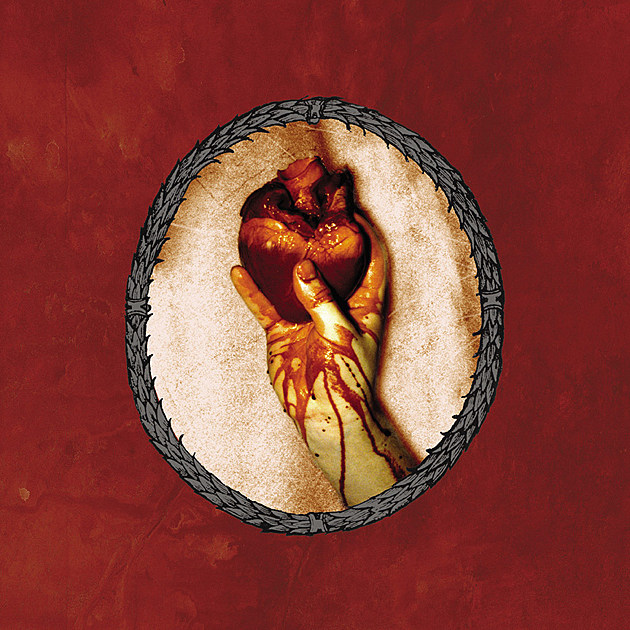
Revisiting Ludicra's Another Great Love Song

…
Misfortune recently befell my current iPod (still my preferred music listening device, if only because it works in the absence of Wi-Fi and doesn’t drain my phone battery), and I found myself searching for a replacement. Not wanting to immediately spend money on repairing it, I dug out an old iPod from my drawer as a temporary substitute and found all my music from 2010 still loaded on it. After a brief peek into my mindset four years ago, I scrolled past Ludicra, the favorite band of Invisible Oranges founder Cosmo Lee. I removed the band from my listening cycle in frustration over their untimely breakup until the months preceding the self-titled Vhol album’s release. That band, guitarist John Cobbett and drummer Aesop Dekker’s crust-punk supergroup which seemed to be a sort of Ludicra successor, displeased me so much that I struck Ludicra from rotation again—I’m fickle like that.
However, seeing their name on my little glowing screen brought back fond memories, and I dove straight back into their discography. I made a beeline for Another Great Love Song, an album which turned ten this week. I didn’t know that when I started listening—that tidbit came later, as I scoured the internet for more information on an album I sincerely forgot ripped so hard. It may not be Ludicra’s most critically acclaimed album (that would be 2010’s The Tenant) nor does it contain my single favorite Ludicra tune (that’s “In Fever” from 2006’s Fex Urbis Lex Orbis), but Another Great Love Song has aged remarkably well. Not only that, but while it forecast the current surge in crust punk black metal crossover acts, it also took that style to melodic and progressive heights that many new bands still haven’t achieved. Likewise, it’s a reminder of how empty the contemporary scene still is without this band.
At first glance this is Ludicra’s most inviting album—not too long, at around 40 minutes in length, with no particularly labyrinthine songs, just seven tracks and a little hidden reprise (and a bonus track on the digital stream). The tones are warm, the drums sit back in the mix, and the guitars are as classically melodic as Ludicra got. John Cobbett had a real chemistry with Christy Cather, and together they made a charming guitar duo, weaving intricate leads around one another’s parts, instead of doubling-up or simply octave harmonizing (even though there was plenty of that as well). Likewise, Cather’s vocals paired well with lead singer Laurie Sue Shanaman’s, and the two often played off one another, or stacked clean-and-harsh vocals in almost choral arrangements. If Ludicra were a piece of art, it would be composed of pieces of tissue paper laid over top of one another until an image shows—everything’s about pairing, counter play, and especially layering. In retrospect, my big critique of Vhol is how stripped-back the project was. In that band, Cobbett used distortion to fill the space that extra instruments took up in Ludicra.
Aesop “Fucking” Dekker’s drumming grounds Ludicra; for proof listen to his neanderthal tom intro to “Let Thirst the Soil.” His style is subtle, full of interesting fills—my favorite trick of his is keeping the beat steady on the drums and then working on a jazzy, polyrhythmic tap on one cymbal before dropping right back into the pocket, like a professional contortionist dislocating and then re-locating a joint. In a year of releases with great drummers, Dekker’s performance split the difference between artfully sloppy and very controlled. The man foresaw my fatigue with the blast-beat years in advance, and focused on crust punk rhythms, only breaking into full-on blast a few times during the record, such as “The Greenest Maze.” This is why in the storage banks of my brain he is always Aesop “Fucking” Dekker, and not his legal name—I’ve given up removing the expletive when referring to him. I miss this wilder, more energetic side of him. This year’s Agalloch record, The Serpent and the Sphere saw him at his slowest and most reserved outside of Worm Oroboros, and I wish he’d liven that group up sometimes.
Another Great Love Song, has character, and ultimately that’s what set Ludicra apart. The minimalist cover art reminds me of of Nick Drake’s Bryter Later in its framing. The central image of the bloody hand holding heart might strike some as juvenile, but heartbreak probably inspires more metal songs than the community cares to admit. And while Ludicra shrouds that lovesickness with anger and obscure lyrics, sometimes the ache informs the vitriol and the music is stronger for it: “When you paint the town red, why not do it from your veins” asks “Why Conquer?” In the three years since Ludicra’s breakup I have continued to look for the sorts of bands that can marry heavy music and genuine, emotive lyrics in the same way. More often than not, I come up short. Fortunately, Another Great Love Songis still around—and available as a name-your-price download. Or, stream it below. American black metal, eat your heart out.
…
…











